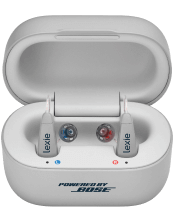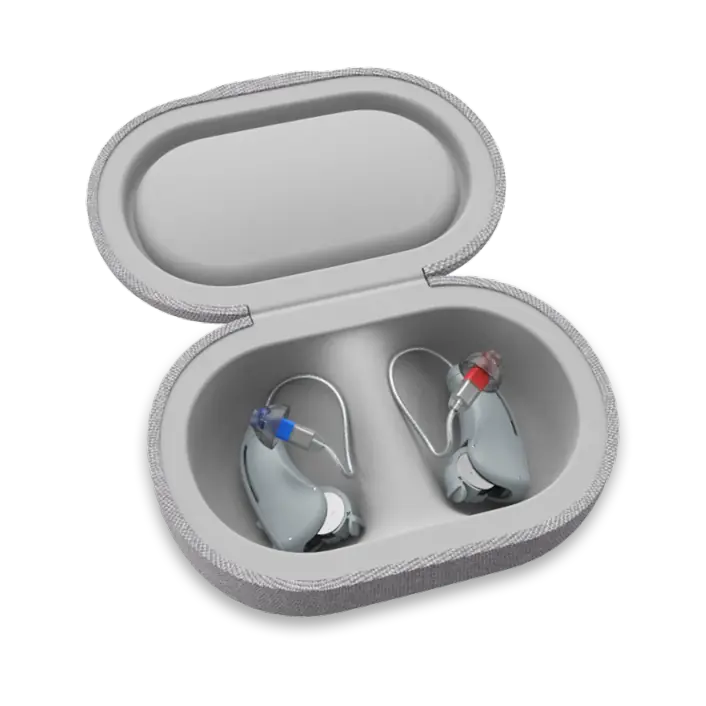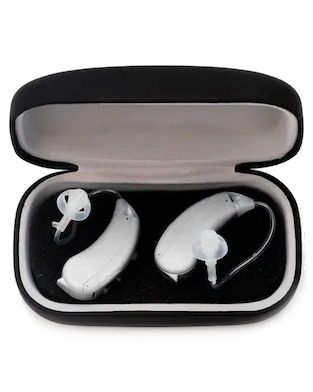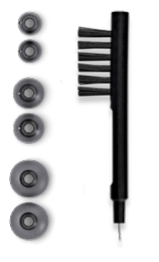Is It Possible to Reverse Hearing Loss?
Published: July 14, 2020
Updated: July 19, 2022
Is it possible to reverse hearing loss?
Loss of hearing can be a traumatic experience. You might struggle to hear your spouse talking, your grandchildren laughing or birds singing outside the bedroom window. You may feel excluded and cut off from social gatherings, not be able to participate in conversations, feel embarrassed to ask people to repeat what has been said, and then choose to isolate yourself further. Because of this, you may wonder if hearing loss can be reversed or cured?
The answer is dependent on the type of hearing loss. Let’s take a look at each major type of hearing loss and how each can be treated.
How does hearing work?
To better understand hearing loss, it’s important to know how hearing works. The hearing system and the process of sound traveling through the ear to the brain are like a symphony orchestra, complete with a conductor, string and wind instruments, the piano, and percussion instruments. Every musician needs to play its individual part, in unity and harmony to perform a beautiful symphony.
The ear consists of three parts. Sound waves are picked up by the shell of the ear, they enter the ear canal and vibrate against the eardrum. This makes up the outer ear. The waves bounce off from the eardrum and travel through the three small bones (ossicles) in the middle ear, amplifying the sound waves further.
From there, the sound enters the inner ear and specifically the hearing organ, the cochlea. Inside the cochlea are microscopic hair cells that pick up the vibrations sent via the ossicles. In turn, this acoustic energy is transferred into electrical impulses that the acoustic nerve sends to the brain to process.
For you to be able to hear, listen, understand, and communicate it is important that all three parts of the ear are intact. Damage to any of these areas can result in hearing loss.
Can You Reverse Hearing Loss?
There are numerous causes of hearing loss—and each type of hearing loss comes with its own set of possible causes. The type of hearing loss ultimately influences whether or not hearing loss can be reversed.
Sensorineural Hearing Loss
Sensorineural hearing loss is the most common type of hearing loss. The damage occurs in the inner ear, specifically in the cochlea and to the auditory nerve. This can be caused by a variety of factors, including aging, exposure to loud sounds/noises, or ototoxic medications.
Sensorineural hearing loss can’t be reversed or cured. Damage to the hair cells in the cochlea and the auditory nerve cannot be repaired. However, the good news is that it can be treated with hearing aids and cochlear implants.
Conductive Hearing Loss
A conductive hearing loss occurs when the outer or middle ear, or both, is compromised. In other words, the entrance of sound to the cochlea and brain is blocked. It may be difficult to hear soft sounds and louder sounds may sound unclear.
In some cases, conductive hearing losses are not permanent. Fortunately, with medical and surgical intervention, it may be reversed or repaired, depending on the cause of this hearing loss. Wax and foreign bodies can be removed. Infections are treated with antibiotics or grommets. Growths and tumors can be surgically removed.
With structural abnormalities, there is a range of options, depending on the situation. Bone-anchored implantable devices, middle ear implants, or prosthetics can be offered as solutions, just to name a few. In many cases, a hearing aid can also be used as a treatment option for a conductive hearing loss.
Mixed Hearing Loss
Mixed hearing loss occurs when both a sensorineural hearing loss and a conductive hearing loss are present. Treatment of a mixed hearing loss will be recommended by your audiologist or doctor.
How To Protect Your Hearing
For common hearing loss causes like aging and loud noise exposure, it isn’t possible to reverse hearing loss. That’s why it’s important to protect your hearing—while treatment can make life easier, your hearing won’t come back once it’s gone. It is important to be aware of the environments you are exposed to and to prioritize the care of your hearing. To protect your ears:
- Avoid exposing yourself to extremely loud environments.
- Wear earplugs or ear protection when in the presence of loud noises.
- Rest your ears. When in the presence of loud noise, your ears need time to recover, sit back, and enjoy the silence.
- Don’t use Q-tips to clean your ears. Ears are self-cleaning organs. Additionally, earwax is important for the health of your ears.
- Manage your stress levels. Anxiety and stress can be added contributors to temporary or permanent tinnitus (ringing in the ears).
- Test your hearing annually.
Treat Your Hearing Loss With Hearing Aids
If you’re experiencing sensorineural hearing loss, it is still possible to get treatment and greatly improve your ability to hear—and subsequently your quality of life.
The most common hearing loss treatment is hearing aids. Hearing aids don’t just help you hear better. They can provide great emotional relief as well. The ability to hold a conversation and avoid feelings of isolation is invaluable.
Lexie hearing makes it easy to manage your hearing loss with Lexie hearing aids. Lexie Hearing provides powerful hearing technology at an affordable price. It is available to buy online, for your convenience.
Try Lexie hearing aids risk-free today by shopping online, or contact a Lexie Expert for more information.






